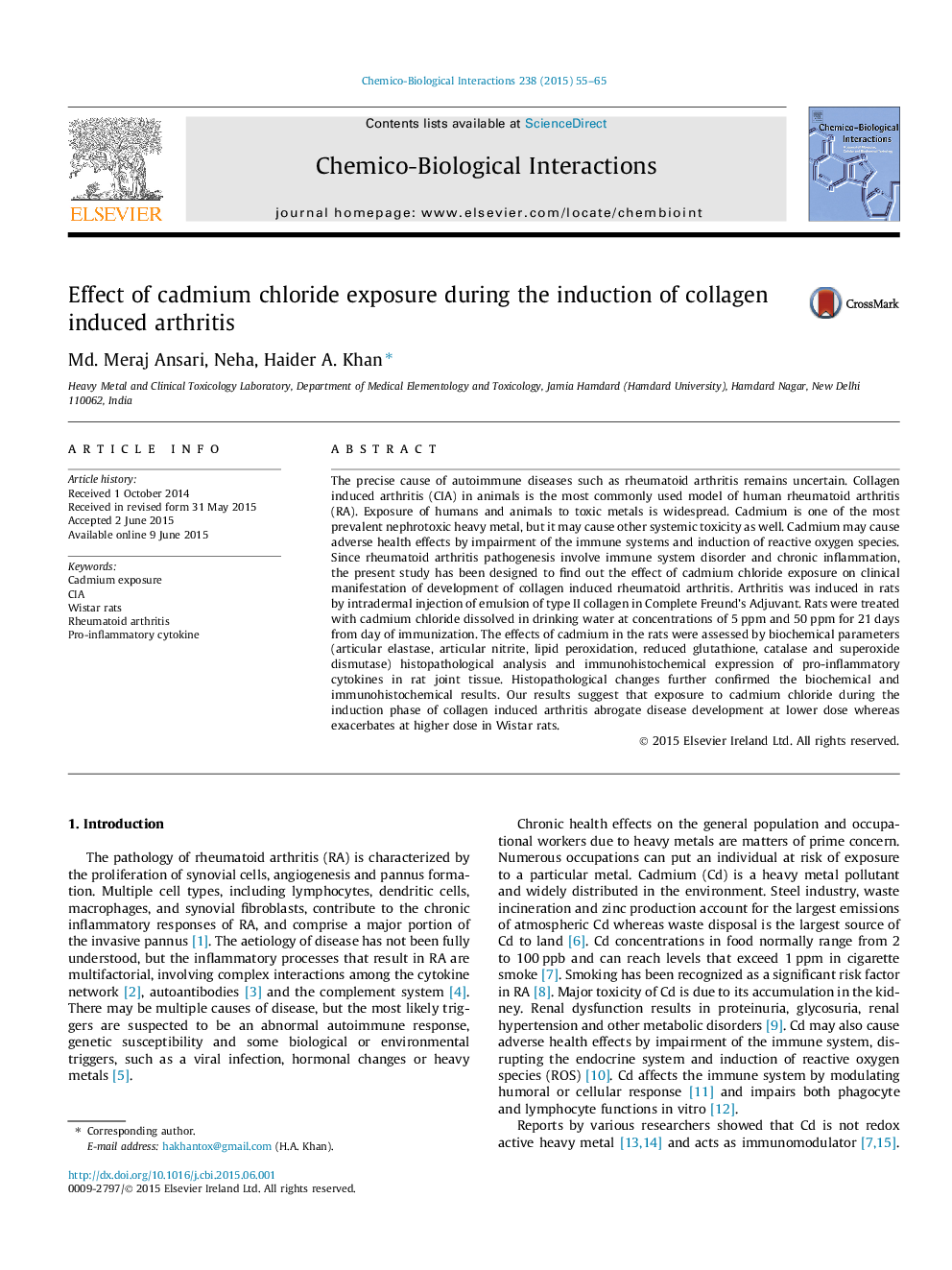| Article ID | Journal | Published Year | Pages | File Type |
|---|---|---|---|---|
| 5847788 | Chemico-Biological Interactions | 2015 | 11 Pages |
â¢Progression of autoimmune disease was arrested at 5 ppm of cadmium chloride exposure.â¢Progression of autoimmune disease was exacerbated at 50 ppm cadmium chloride exposure.â¢Anti-oxidant level was restored at 5 ppm of cadmium chloride while decreased at 50 ppm.â¢Pro-inflammatory modulators were down regulated at 5 ppm of cadmium chloride exposure.â¢Pro-inflammatory modulators were up regulated at 50 ppm cadmium chloride exposure.
The precise cause of autoimmune diseases such as rheumatoid arthritis remains uncertain. Collagen induced arthritis (CIA) in animals is the most commonly used model of human rheumatoid arthritis (RA). Exposure of humans and animals to toxic metals is widespread. Cadmium is one of the most prevalent nephrotoxic heavy metal, but it may cause other systemic toxicity as well. Cadmium may cause adverse health effects by impairment of the immune systems and induction of reactive oxygen species. Since rheumatoid arthritis pathogenesis involve immune system disorder and chronic inflammation, the present study has been designed to find out the effect of cadmium chloride exposure on clinical manifestation of development of collagen induced rheumatoid arthritis. Arthritis was induced in rats by intradermal injection of emulsion of type II collagen in Complete Freund's Adjuvant. Rats were treated with cadmium chloride dissolved in drinking water at concentrations of 5Â ppm and 50Â ppm for 21Â days from day of immunization. The effects of cadmium in the rats were assessed by biochemical parameters (articular elastase, articular nitrite, lipid peroxidation, reduced glutathione, catalase and superoxide dismutase) histopathological analysis and immunohistochemical expression of pro-inflammatory cytokines in rat joint tissue. Histopathological changes further confirmed the biochemical and immunohistochemical results. Our results suggest that exposure to cadmium chloride during the induction phase of collagen induced arthritis abrogate disease development at lower dose whereas exacerbates at higher dose in Wistar rats.
